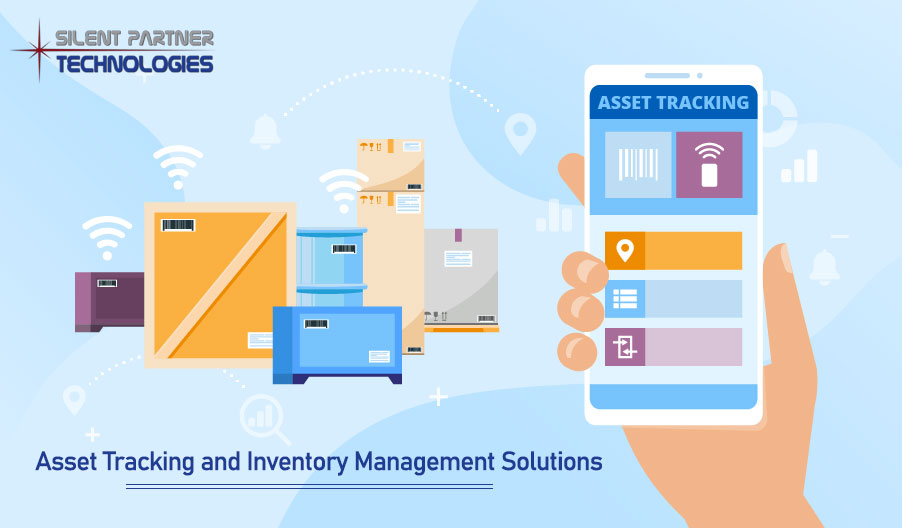Asset and inventory tracking management are often interchangeable. But, there are differences between them both. After all, their purpose and software application vary.
Nonetheless, both these solutions upgrade resource optimization while decreasing costs. Both asset tracking and inventory management systems help in monitoring objects. But the difference lies in how to track those objects and why to track them.
Generally, assets are the items you own, whereas the inventory is what you put on sale. The former is a predictable and stable pool of objects, while the latter is a moving and volatile target.
 Inventory Vs Asset Inventory
Inventory Vs Asset Inventory
The concept of inventory depends on the supply chain. There are various things involved in inventory. but it usually deals with goods or products held by a company. It includes raw materials, supplies, finished goods, as well as other parts.
The inventory assets are also the same. But the main difference is that they state salable inventory. These are often mentioned on balanced sheets. They also help in streamlining the process of manufacturing. This way it helps in meeting the increasing product demand. Without consumable inventory assets, companies may face shortages that may limit their revenue.
Both concepts are different from assets, which helps in managing inventory. For instance, machines are common assets that need careful maintenance and tracking. The machines are stable assets compared to the inventory. But loss or damage is more devastating when your high-value assets are in the picture. Thus, companies have to maintain and keep track of their assets. any issue could slow down the manufacturing or other business processes.
Asset Tracking System
Asset tracking system monitors machines, tools, equipment, vehicles, furniture, and other business items. This way it helps in streamlining the manufacturing output or own operations. Usually, assets come under capital expenditures. Plus, a fixed number of assets at a particular time is crucial.
Advantages of Asset Tracking
Asset tracking helps businesses to reduce their efforts for asset auditing. Meanwhile, it upgrades the 100-percent accuracy of asset inventory. It further increases large savings to prevent unnecessary equipment losses. It even helps in preventing any crisis at the company.
The assets that need tracking are machines or tools used in the production of final sales of goods. Due to this, there’s improvement in the end product, quality, and happier customers.
If you lose any important document, it can lead to a drastic financial crisis or lawsuits. So, it is important to invest in an advanced asset tracking system. This system can find old files for you in a jiffy. moreover, it makes it easier to deal with quality control/assurance during manufacturing. If you track things with cloud-based storage, you don’t have to worry about losing a file – like in a manual system.
How to Install Asset Tracking
The major advantage of asset tracking is to help you determined where the assets are. It also helps in figuring out where you stored, when you repaired, and when you calibrated them last time.
All you need to do is attach the asset tracking system to an item. after that, you can track items and their locations or conditions using RFID tags. The installation is very simple. Or, you can consult an expert for the installation process.
With the advanced asset tracker, you can do regular tracking daily, weekly, or yearly. It depends on how you like to keep records.
The asset management software may range from a straightforward to complicated application. So, you can use it to track items’ location or for automatic real-time tracking for various assets.
What assets need tracking?
The advanced asset tracking software can track various assets, such as:
Movable assets – You need more visibility to track your vehicles, industrial assets, and other movable assets. A company needs a custom asset tracking system for easy tracking of its assets. For example, a gas station firm needs such a system to track the location of their oil drilling rigs. they need a custom asset tracking system. This way, the company can get desired transparency in locations and usage patterns of the rigs. It will also help them to reduce downtime and improve asset use.
Assets in regulated sectors: It also helps in tracking assets in regulated sectors, like the healthcare sector. For instance, such a tracking system is important in the handling of laboratory samples in lab diagnostics. It helps in maintaining the accuracy of the results. This in turn impacts patient care and other therapeutic decisions. So, a diagnostic laboratory also needs a modern asset tracking solution.
It uses a cloud database to store data about lab samples’ properties and locations. Even the lab personnel gets access to real-time data of locations, statuses, and types of lab samples.
Inventory: The system is important to ensure continuous and reliable inventory tracking. This system also remembers the conditions of your inventory items. Meanwhile, you can find whether the inventory is breakable or temperature-sensitive, what the volume of inventory is, and whether it consists of individual assets, bunches, or packages. According to the collected information, you can select the right tracking to avoid signal collisions. Meanwhile, it ensures constant tracking of large volumes of inventory.
Inventory Management System
How Does Inventory Management System Work?
Inventory management system influences supplier data, like materials costs, and customer data. So, it is helpful to improve forecasting and planning of sales and production. this way, companies can benefit from better sales and the right inventory stock over time.
It helps to replenish stock, track consumables and locating items in a store or a warehouse. Usually, this system includes picking, receiving, shipping, packing, and replenishment functions.
Inventory management targets distributors, warehouses, retail stores, hospitals, and various other firms. Using this advanced system, you can manage the inflow of goods in all these sectors without issue.
When to upgrade the inventory management system
When you move to a dedicated inventory system, you get massive benefits to your company. But here are some noticeable signs indicating your inventory management system needs an upgrade:
You need flexibility: The spreadsheets are the not-so-flexible way to handle inventory. You need to upgrade old software to cloud-based inventory software if you feel the need for an automated sheet management system. You also need an up-gradation if you’re facing issues dealing with workers to get real-time data.
You want more accuracy: If you find it hard to track a specific item you had at one time, you need a dedicated solution for yourself and your employees to get the latest information. So, think about advanced inventory management software to get the latest updates at any time from anywhere.
Rising inventory costs: The holding costs majorly undermine the deadline when they are not under control. The key to reducing the holding costs is to store enough stock as you need. Effective inventory management is crucial for helping you maintain efficient storage.
Slow growth: The sales growth decreases if a salesperson manually finds out about the product sales and materials left in the inventory. Even manual report-making is too time-consuming. A salesperson would not have enough time to focus on the customers due to this. The slowing sales is a sign of poorly managed stock. It is when you need an advanced inventory management system.
RFID for Asset and inventory tracking Management Systems
RFID (radio frequency identification) tags are ideal for asset tracking and inventory management. it is a wireless system comprising tags that when attached to particular items for tracking them. Even readers can identify these tags.
The RFIDs are very clear for asset tracking. These tags are very reliable and versatile. So, they are helpful in security solutions for limiting losses of business assets. These tags not only handle common issues, like maintaining equipment but also help to track valuable IT assets.
RFID technology is an excellent inventory management tool. Plus, it is also a great asset management solution. This system enables real-time tracking to improve stocking efficiency. Meanwhile, it protects goods from warehouse theft.
For global businesses, RFID is a very reliable solution for verifying shipment. Unlike the advanced RFID, manual tracking cannot help you with efficient asset management.
The inventory management system is also important in the health sector to maintain assets. This advanced system even helps in managing assets. Both these elements are crucial for the safety and health of the patients.
In the healthcare industry, inventory (such as medications) needs close tracking. It helps in proper safety and compliance. Their assets are machines and equipment – like MRI machines, X-ray machines, and CT scanners. Practical tracking software can take care of both elements. Plus, it streamlines the daily operations in hospitals and clinics.
Experts Offer These Solutions To Help Businesses
Both asset tracking and inventory management are important for companies and stores. So, you need to take both into account for stable growth. Although these elements have some noteworthy differences, they do share real-time data.
It is confusing to manage separate software for both. It’s time-consuming as well. So, it is worthwhile to get a system that can handle both. This solution is often tailor-made for reflecting how inventory can change through business. Meanwhile, it also helps with specific goals surrounding a company’s valuable assets.
The custom RFID solutions offer integration on different supply chain systems. So, you get a powerful insight into asset tracking and inventory management. The efficient RFID solution ensures the system abides by all the customer requirements. The experts help you install the best asset tracking and inventory management system.
You need professional guidance to get a streamlined solution for handling complications. You may face issues when handling assets and inventory. But experts can guide you with an apt solution. So, it is best to consult the right software company. They provide you a powerful tracking solution to meet your business tracking needs.

 Inventory Vs Asset Inventory
Inventory Vs Asset Inventory